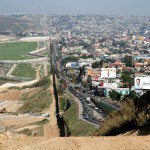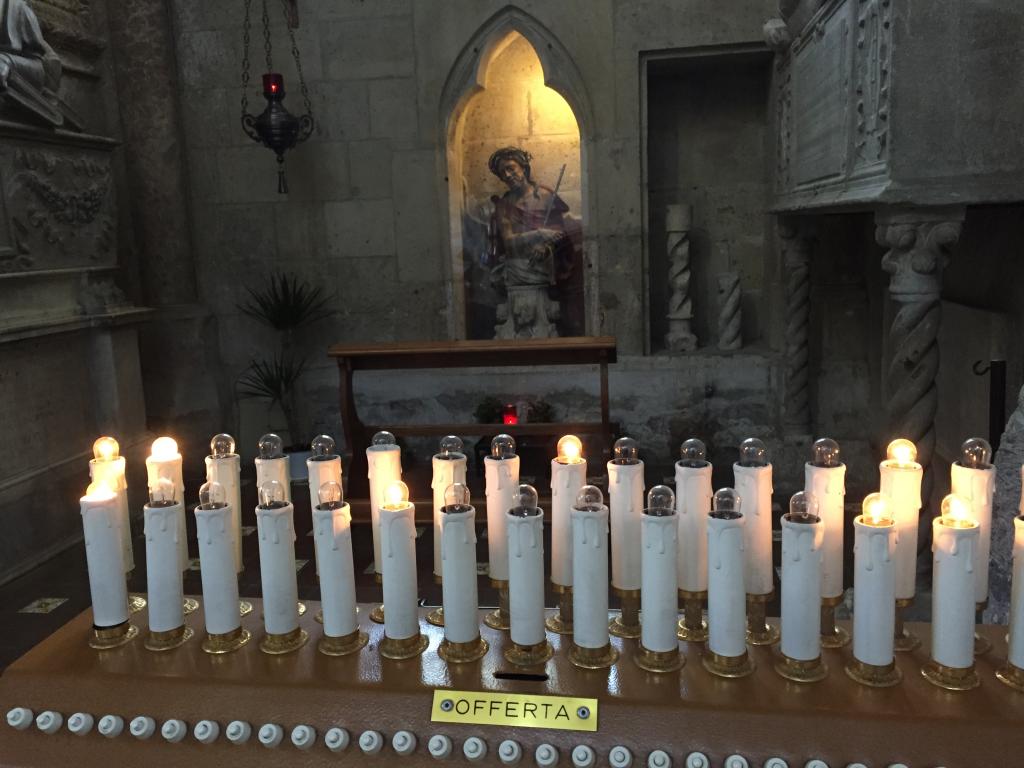![https://commons.wikimedia.org/wiki/File%3ABombed_out_vehicles_Aleppo.jpg; By Voice of America News: Scott Bobb reports from Aleppo, Syria [Public domain], via Wikimedia Commons](https://wp-media.patheos.com/blogs/sites/533/2016/12/Bombed_out_vehicles_Aleppo.jpg)
So Trump’s big “extreme vetting” executive order was signed yesterday, and I’ve been waiting for the text to be added to the White House site, though so far I’ve only found it at CNN.com, along with a summary of its contents.
First, the good:
There are three bits of “fake news” floating around:
First, the executive order does not prioritize Christian refugees. Here’s the text:
Upon the resumption of USRAP admissions, the Secretary of State, in consultation with the Secretary of Homeland Security, is further directed to make changes, to the extent permitted by law, to prioritize refugee claims made by individuals on the basis of religious-based persecution, provided that the religion of the individual is a minority religion in the individual’s country of nationality. Where necessary and appropriate, the Secretaries of State and Homeland Security shall recommend legislation to the President that would assist with such prioritization.
So, first of all, everyone that claims that Trump is “killing Anne Frank all over again” would do well to note that this is exactly the sort of provision which, had it existed in the 30s, would have given the Frank family a visa, as a religious minority. It makes perfect sense to prioritize religious minorities both because their situation is objectively worse, in terms of their treatment in refugee camps*, and because the likelihood that they will be able to be eventually repatriated is lower — at least everything I’ve seen suggests that even when the shooting ends, the Christians, Yazidis and other religious minorities will have a much more difficult time returning home. (*Side comment: it’s my understanding that the reason why, even though Christians make up 10% of the Syrian population, they comprise less than 0.5% of refugee admissions, is that they are victims of abuse by Muslims within the official refugee camps, so they take refuge elsewhere, and are thus ineligible for the UN-sponsored refugee resettlement programs.) It also seems to me, though it’s not been mentioned in any reports, that this would provide preferential status to the Rohingya, a Muslim minority group in Myanmar.
Second, the countries whose nationals are (temporarily) banned from admission are not spelled out in the executive order at all. The CNN report clarifies that this is a restriction that applies to a pre-existing list of countries:
“The executive order bars all people hailing from Iraq, Syria, Iran, Libya, Somalia, Sudan and Yemen . . . from entering the United States. Those countries were named in a 2016 law concerning immigration visas as “countries of concern.”
What’s this about? CNN labels this as referencing a 2016 law, but it seems to be a 2016 implementation of a 2015 law, the Visa Waiver Program Improvement and Terrorist Travel Prevention Act of 2015. The Customs and Border Protection site explains that this law specified certain terrorism-linked countries, travel to which made a visitor ineligible for the Visa Waiver Program. In other words, if you’re a British national but have travelled to Syria, you must go through the full process to obtain a visa rather than simply showing your passport at the border as would otherwise be permitted. The original law covered Iraq and Syria (see the full text here), the other countries were added in early 2016, that is (does it need to be said?) by the Obama administration.
Hence, whether you agree or disagree with this 90 day moratorium, it does not seem appropriate to label this discriminatorily anti-Muslim.
Third, there were reports that Trump had gone so far as to eliminate the Visa Waiver Program entirely. Not true. Trump is suspending the Visa Interview Waiver Program, which requires that individuals seeking nonimmigrant visas, not eligible for the Visa Waiver Program, be interviewed in person. The Order also calls for an expansion of the Consular Fellows Program to provide more interviewers. (I guess these aren’t included in the hiring freeze because they’re not career appointments?)
The order also requires the biometric entry-exit tracking system which has been stipulated by law since 1996 but never actually implemented by any of the administrations that have come and gone since then. (See this article in The Hill; yes, it’s by the head of Numbers USA, but I’m going to assume that he’s being straight on the basic facts.)
The Secretary of Homeland Security shall expedite the completion and implementation of a biometric entry-exit tracking system for all travelers to the United States, as recommended by the National Commission on Terrorist Attacks Upon the United States.
And — well, in general, it’s entirely reasonable to call for visa screening procedures to be reviewed and tightened to exclude from entry those who could pose a terrorist threat, or who may potentially
engage in acts of bigotry or hatred (including “honor” killings, other forms of violence against women, or the persecution of those who practice religions different from their own) or those who would oppress Americans of any race, gender, or sexual orientation.
Next: The bad.













